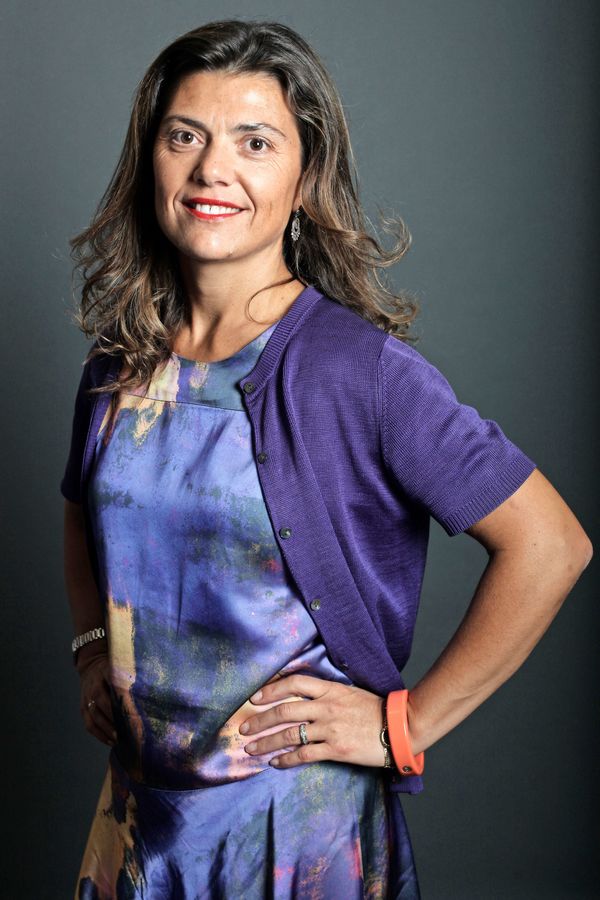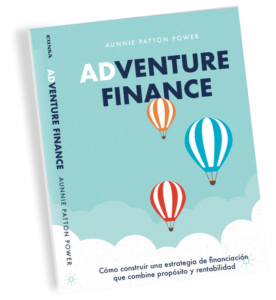
Rosa Madera, a philanthropy and social investment advisor explains how this trend has been developed in Chile.
When having more fortune for them is no longer the most transcendent thing, they feel it is their duty to accelerate solutions
When Spanish lawyer Rosa Madera meets with a family who wants to contribute to a cause, the first thing she does is to listen carefully. They tell me what it’s to give back to society. They know that they are very privileged, they feel a moral duty to support social initiatives and at the same time an enormous gratification when they do it , says the lawyer from the U, from Oviedo (Spain), master in community law in Saarbrucken (Germany) and master in public administration from the Complutense University (Madrid).
Rosa lives in Chile for thirteen years and in 2008 she was one of the founders of the Association of Family Businesses (AEF). In September 2011, Felipe Ibáñez, former controller of Lider, called her to create the Fundación Ibáñez Atkinson, which was founded in 2012. This organization is dedicated to culture (music, reading and entrepreneurship), environment and social peace. <I worked with a socially sensitive family with four children. I was able to travel to the U.S., Colombia, Spain and learn how other family foundations were managed; besides travelling in Chile and learning about various social causes >, says Madera, who is part of the board of the Kennedy Foundation (wetland conservation), advisor and partner of the Chilean Chapter of the Association Women in the Arts, director of the fundación Celebraciones con Sentido (by Roberto Ibáñez), as well as founder and board member of the organization Aportes de Gestión (which improves the impact of social organizations).
She is currently advising two Families (whose names they prefer to keep private) in the creation of their foundations and several organizations in the reformulations, boards, transparency.. She explains philanthropy as the use of wealth for deeper purposes: When having more fortune for themselves and theirs is no longer the most transcendent thing, they feel a duty to accelerate solutions to problems that require time, money and talent.
100 foundations in Chile
Her experience led her to found in 2016 the strategic philanthropy and social investment Empatthy, dedicated to advise families and economic groups wishing to start a social investment project.<With the families we develop a methodology of one or two day workshops, where they understand how they want to contribute according to their values and concerns; in addition, we see successful programs to replicate or ally with them >, says Madera, who gives talks to Chilean companies (Banco de Chile, Spanish Chamber of Commerce) and universities.
The executive says there are approximately 100 large fortune foundations in Chile and that in the last ten years foreign environmental conservation organizations such as TNC (The Natural Conservancy) and WCS (Wildlife Conservation Society) have arrived, encouraging entrepreneurs to look for land to preserve in Chiloé, Magallanes and Patagonia; Tompkins inspired many in this cause, she says.
The study <Foundations and Philanthropy >, from the IM Trust Foundation (2016), says that 58% of people think that donations from entrepreneurs are low or very low and 53% think that companies donate little or very little….
In Chile there has been a growth in recent years in family foundations and the possibility of supporting causes motivates some young people who say they are not interested in financial issues, but are interested in the management of their philanthropic assets. It is necessary to overcome the obstacles that arise between donors and beneficiaries in order to be aligned. Citizens distrust institutions and think that there is little transparency in the use of funds, since in Chile professionalism in foundations is still low.
What are the legal changes that have taken place in recent years that favour the creation of foundations?
In 2012, Law No. 20,500 came into force, which contains the greatest reform of the Civil Code’s regulation of non-profit legal entities. Its main aspect is the relaxation of the form of incorporation of corporations or foundations: today there is a solemn constituent act that can consist of public deed or private deed, but signed before an authority such as a notary, civil registry official or municipal official authorized by the mayor. Before, this was done in the Ministry of Justice and took more than a year.
Today in three months can be made a foundation, so they have proliferated.
Eileen Rockefeller( Great-granddaughter of Rockefeller) describes philanthropy as < the glue that has held my family together for 7 generations >.
Company directories talk about dividends, margins and competition, but foundation directories talk about how to solve social problems, how to help others, how to invent solutions and how to improve dynamics to reach more beneficiaries. In family foundations, well-planned philanthropy fosters family cohesion, contributes to the success of their children and keeps their values alive.
In what way?
Philanthropy allows family members to unite through something that unites and identifies them; it favours the emergence of a feeling of pride and belonging. It allows them to link themselves to a field of philanthropic action that unites them and at the same time helps others.
Link: http://impresa.lasegunda.com/2017/10/03/A/U138D8OS/FQ38DCL8





